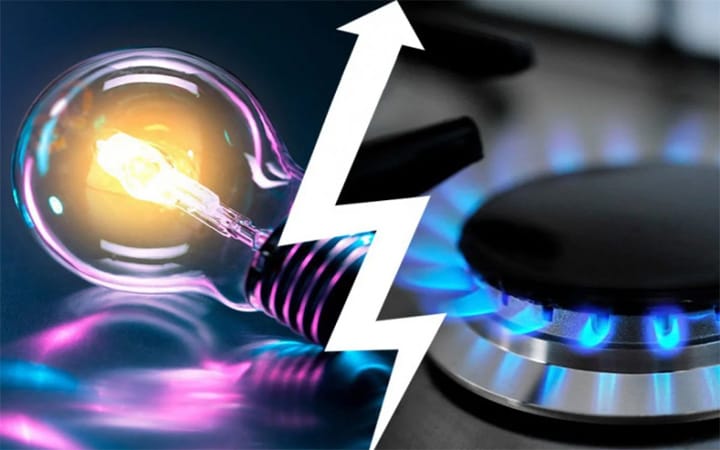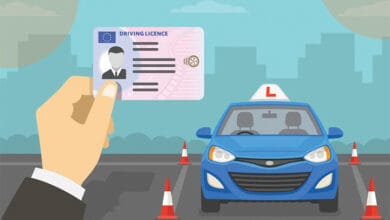Utilities Setup in UAE for Expats: Everything You Need to Know

Setting up utilities in the UAE may seem daunting at first, but with the right guidance, it can be a smooth and straightforward process. Whether you’re a new resident, a business owner or just relocating within the country, understanding how utilities function in the Emirates is crucial. To help you settle in without any worries, we’ll go over everything you need to know about setting up utilities in the United Arab Emirates, including gas, water, electricity, internet, waste management and more.
Understanding the Utilities Landscape in the UAE
The UAE boasts a highly developed infrastructure with modern utility services regulated by regional authorities. The primary entities include:
- DEWA (Dubai Electricity and Water Authority)
- SEWA (Sharjah Electricity and Water Authority)
- ADDC (Abu Dhabi Distribution Company)
- Etisalat and du for telecom services
Utilities in the UAE are categorized into:
- Electricity and Water
- Gas (Natural and LPG)
- Telecom and Internet
- Waste Management and Sanitation
Each emirate operates with a slightly different framework and service provider, so identifying your regional service partner is the first step.
If you’re considering relocating, having a solid grasp of how utilities work is essential. For a broader perspective on adjusting to life in the Emirates, check out this Expat guide to living in UAE. It offers practical insights beyond utilities, from housing to daily expenses.

Electricity Setup in UAE
Major regional providers—DEWA in Dubai, SEWA in Sharjah, and ADDC or AADC in Abu Dhabi—manage the electricity setup in the United Arab Emirates in a simplified and effective manner. Residents can start the connection process in a number of easy ways, such as by using online portals like the DEWA app or website, or by letting their landlords or real estate agents do it for them. Even though in-person service center visits are still possible, they are becoming less frequent as digital services become more accessible. A copy of their Emirates ID, a tenancy agreement or Ejari certificate (for Dubai), a copy of their passport and a filled-out application form are normally required in order to apply. This process is especially relevant if you’re planning to rent an apartment in Dubai, as DEWA registration is a mandatory step before moving in. Once submitted, electricity connections are usually activated within 24 to 48 hours, ensuring a swift and hassle-free experience.
Water Connection Process
In the United Arab Emirates, the process of connecting water and electricity services is closely related and is governed by the same regional authorities. In Abu Dhabi, ADDC is in charge of both utilities, while in Dubai and Sharjah, DEWA and SEWA are in charge of both. While commercial users must pay higher rates of AED 4.50 to 5.50 per cubic meter, residential users enjoy subsidized water rates of AED 3.00 to 3.50 per cubic meter. A number of variables, such as the user’s consumption level, the kind of lodging and particular rules established by each Emirate, affect these rates. Digital water meters are installed to guarantee correct billing, encourage efficiency and reduce the possibility of overcharging by enabling real-time monitoring.

Gas Connection and Installation
In the UAE, installing and connecting gas is an essential part of setting up utilities, particularly for homes and businesses with high heating and cooking needs. While villas and older buildings might rely on LPG cylinders or private installations through licensed providers like Lootah BC Gas or Emirates Gas, the majority of contemporary apartments come with central gas systems that are maintained by the building management. Residents must get in touch with an authorized provider, provide their Emirates ID, tenancy agreement, and property details and then go through a site inspection before their request is approved in order to create a residential connection.
Commercial establishments such as factories and restaurants need high-capacity gas lines, which require installation by certified contractors and approval from Civil Defense and local authorities. To guarantee safety, gas leak detectors must be a part of these commercial setups. In order to protect people and property, all gas systems are legally required to adhere to stringent safety regulations, which include yearly inspections, emergency shut-off valves and required kitchen alarms.
Internet and Telecom Services
Offering high-speed internet and a wide range of telecom services, the United Arab Emirates is well known for having one of the most sophisticated and dependable telecom infrastructures in the Middle East. The two top providers, du and Etisalat, cover different areas; du is especially well-liked in Dubai and more recent residential developments, while Etisalat offers coverage throughout the country. It is easy to apply for telecom and internet services, and you can do so in person at specific service centers or online. Usually, applicants must show their Emirates ID, their lease and occasionally a copy of their passport.
There are several plan options to meet different needs, including the du Home Starter at AED 199 for 150 Mbps and the Etisalat Basic plan at AED 299 per month for 250 Mbps. High-performance packages with speeds up to 1 Gbps are available to business users for as little as AED 399. Furthermore, both providers provide bundled packages that combine mobile, landline and TV services, which makes it simpler for customers to handle all of their communication requirements at once.
Steps to Setup Utilities for New Residents
How to Configure New Residents’ Utilities. Relocating to a new residence? This is a detailed checklist for configuring utilities:
- Obtain a lease and Ejari (specific to Dubai)
- Depending on where you live, register with utility companies
- Send in the necessary paperwork, such as your passport and Emirates ID
- Pay the deposit and connection fees
- Get a confirmation by email or SMS
Estimated Timelines
The majority of utility setups are finished in one to three business days. Setting up the internet could take a little longer, particularly in new developments.
Utility Setup for Businesses in the UAE
Commercial properties have different processes and fee structures:

Permits and Licencing
Obtaining the required legal documents is the first step in setting up utilities for businesses in the United Arab Emirates. The most important prerequisite is a current trade license, which needs to be granted by the appropriate government agency depending on where your company is located. In addition to the trade license, companies usually have to submit:
- Lease agreement or Ejari (verifying the commercial space’s rental status)
- Chamber of Commerce certificate, which attests to the company’s legitimate registration
- Municipality approvals (based on the location and type of business)
Initiating service requests with utility providers requires these documents.
Business Rates
Because of their higher demand and usage, businesses in the UAE are subject to higher utility rates than residential customers. Commercial electricity rates typically range from 35 to 45 fils per kWh. These prices may differ depending on:
- Total amount consumed each month
- Use time (peak versus off-peak hours)
- Regulations unique to the Emirate
Businesses are encouraged to optimize energy usage and take into account energy-efficient solutions by this pricing structure.
Options for Bulk Services
Bulk utility service packages are offered in major industrial zones to companies that operate in high-demand settings, like factories or logistics hubs. Customized utility solutions are available in places like Dubai Investments Park (DIP) and Jebel Ali Free Zone Authority (JAFZA). These include:
Specific water and power connections
Maintenance and service support priorities
Bulk prices that are reduced according to usage volume
These choices guarantee reliable and affordable access to necessary utilities, which is very advantageous for large-scale operations.
Differences in Utility Services Across Emirates
Because every Emirate has its own regulatory bodies, service providers, and pricing structures, utility services vary significantly across the UAE. For example, Sharjah depends on SEWA, Abu Dhabi on ADDC, and Dubai on DEWA, which is renowned for its cutting-edge digital platforms and clever utility features. These providers have different billing systems, customer service frameworks and application processes. Emirates may also differ in terms of available service bundles, deposit requirements and water and electricity rates. While some regions may still rely in part on manual procedures, others may provide more comprehensive online services and support for mobile apps. Understanding these differences is especially important when evaluating the best places to live in UAE, as local utility experiences can significantly affect daily comfort and convenience. Residents and businesses must be aware of these regional variations in order to guarantee a seamless and legal utility setup process.
Conclusion
Whether you’re a business owner, a temporary visitor or a new resident, setting up utilities in the United Arab Emirates is a methodical and efficient process. Residents enjoy modern infrastructure and digital convenience thanks to specialized authorities like DEWA, SEWA and ADDC managing utilities like gas, water, and electricity. All Emirates have high-speed internet connectivity thanks to telecom companies like Etisalat and du. Although there may be minor variations in utility setups between Emirate, the processes are typically quick, effective, and backed by multilingual customer support staff. You can guarantee a hassle-free experience by getting the necessary paperwork ready ahead of time and being aware of the particular requirements of your location.
Visit wikiHow right now for the most thorough and current news, guides and useful information about residing and conducting business in the United Arab Emirates. WikiHow assists you in navigating every facet of life in the Emirates, from adjusting to the local way of life to managing expenses and setting up utilities, with detailed instructions and professional advice.
FAQs
1. What documents are needed to set up utilities in the UAE?
You’ll typically need your Emirates ID, passport copy, tenancy contract or Ejari and a completed application form. For businesses, a trade license and additional approvals are required.
2. How long does it take to activate utilities?
Most utility connections are activated within 24 to 48 hours after submitting all necessary documents and paying the required fees.
3. Are utilities more expensive for commercial properties?
Yes, commercial utility rates are higher than residential rates. Electricity, for example, can range from 35 to 45 fils per kWh for businesses.






Hi, just required you to know I he added your site to my Google bookmarks due to your layout. But seriously, I believe your internet site has 1 in the freshest theme I??ve came across. It extremely helps make reading your blog significantly easier.
Thank you! 🙏 We’re so glad you enjoy the layout and design, happy to hear it makes your reading experience easier and more enjoyable!